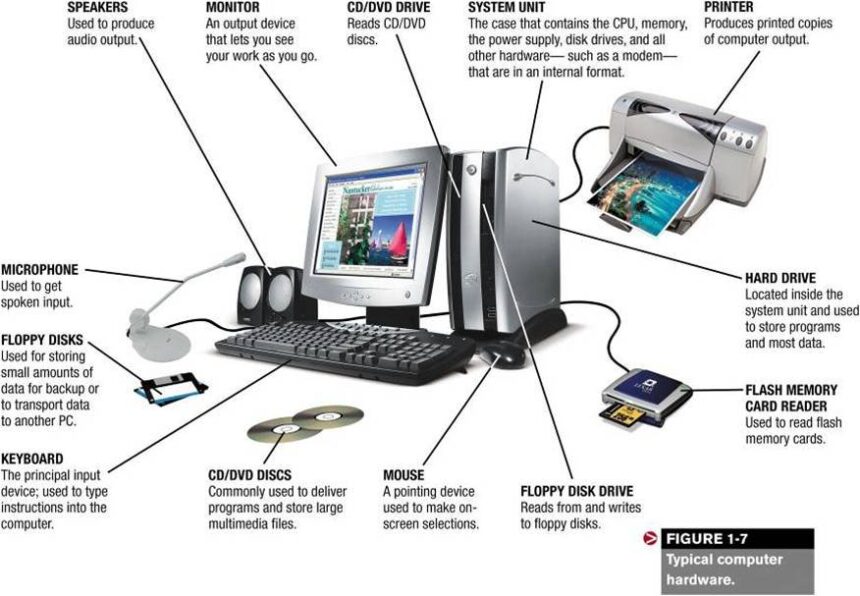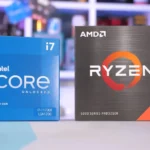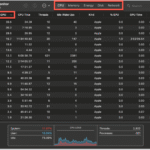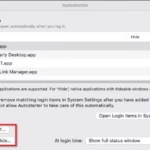Okay, tech fans and regular computer users, get ready! Today, we’re going to learn a lot about the important world of Computer Terminology. As a long-time blogger who has spent a lot of time figuring out how the digital world works, I can tell you that the first step to mastering your computer is to learn its language.
And while we’re on the subject of mastering your digital life, we’ll also talk about how understanding these terms can help you Improve Computer Performance and Be More Productive in your daily life.
I found a great resource called “Computer Terminology Explained: A Glossary” that will help us get started on our journey. I can’t give you a direct link to a specific article I haven’t read, but think of it as a complete A-to-Z guide with definitions of all those techy words that often leave us confused. In the digital age, think of it as your Rosetta Stone.
Now, let’s talk about why this is important and how you can use what you’ve learned to become a better and more confident computer user.
Computer Terms: Why It Matters
Computers are no longer just tools; they are now a big part of our lives in today’s hyper-connected world. We depend on them all the time for work, communication, entertainment, and learning. A lot of us, though, don’t really understand the basic language that makes this digital world work. This is when it is very important to know Computer Terminology.
If you don’t know the difference between a carburetor and a catalytic converter, how would you fix a problem with your car? It’s annoying, isn’t it? The same goes for your computer. A basic understanding of the terms used can help you save time, avoid frustration, and even protect your data when you get an error message, want to change your settings, or just want to know what a software update means.
Also, if you want to Improve Computer Performance and Be More Productive, knowing what hardware terms mean (like RAM, CPU, and hard drive) and software terms (like operating system, applications, and drivers) will help you make smart choices about upgrades, software installations, and system maintenance in general.
H2: Building Your Digital Vocabulary: A Guide to Important Computer Terms
Let’s talk about some important Computer Terminology that everyone who uses a computer should know. You can think of this as a short list of words to help you get started.
Hardware: The parts of a computer system that you can touch, like the monitor, keyboard, mouse, central processing unit (CPU), and memory (RAM). Knowing how hardware works can help you figure out which parts make your computer faster and give it more storage space.
This is directly related to Computer Performance. This includes the operating system (such as Windows, macOS, or Linux), utilities, and apps (such as word processors and web browsers). Good software management is essential for a Productive computing experience. *
Operating System (OS): The software that controls the hardware and software resources of a computer and provides common services for programs. For the best Computer Performance, it’s important to pick the right operating system and keep it up to date. Most of the time, a faster CPU means better Computer Performance. Random Access Memory (RAM):
This is temporary storage that the computer uses to hold data that is currently being used. More RAM can greatly Improve Computer Performance, especially when you are doing more than one thing at a time.
Hard Disk Drive (HDD) / Solid State Drive (SSD): This is where your computer’s operating system, applications, and files are stored. SSDs are usually faster than HDDs, which means that your computer boots up and loads applications faster, which makes you more productive.Internet Protocol (IP) Address: A number that is given to each device that is connected to a computer network and uses the Internet Protocol to talk to other devices. Knowing how to read IP addresses can help you fix network problems.
Uniform Resource Locator (URL): The Internet’s address for a resource. Understanding how to read URLs can help you get around the web better.
Malware: Software that is meant to harm or stop working on computers and computer systems. For online safety, it’s important to know about different kinds of malware, such as viruses, worms, and Trojans.
Firewall: A network security system that checks and controls network traffic coming in and going out based on set security rules. A firewall that is set up correctly can keep your computer safe from bad attacks and help it run smoothly.
Cloud Computing: The use of a network of remote servers on the Internet to store, manage, and process data instead of a personal computer or a local server. Learning about cloud services can help you work more efficiently.
Algorithm: A clear set of steps for solving a problem or doing a calculation. Understanding the basic idea behind algorithms can help you understand how software works. Algorithms are the building blocks of computer programs.
User Interface (UI): The way a person interacts with a computer or software program. A well-designed UI can greatly Improve Computer Performance by making it easier to do things.
User Experience (UX): The overall experience of a person using a product, system, or service, especially how easy or enjoyable it is to use. Putting UX principles first can make software and websites more productive.
This is just a small taste of the huge world of computer terminology, but learning these basic words will definitely help you when you use computers.
Useful Tips: Using Computer Terms to Boost Your Productivity and Performance
Now that we’ve gone over some important words, let’s talk about how knowing them can help you make real changes in your daily life that will help you Improve Computer Performance and Be More Productive.
Smart Software Choices: When you know the differences between different types of software and what kind of system they need, you can choose what to install more wisely. Installing software that isn’t needed or uses a lot of resources can make your Computer Performance worse. You can pick software that works well with your hardware by reading the specifications and knowing what terms like “minimum requirements” and “recommended specifications” mean. This will make your experience more productive and smooth.
Efficient File Management: Knowing what “file extensions” (.doc, .pdf, .jpg) and “file directories” (folders) are will help you keep your digital files in order. A file system that is well-organized makes it easier to find what you need, which saves you time and increases your Productivity. Regularly cleaning up your hard drive and knowing what storage terms mean can also Improve Computer Performance by freeing up space that is important.
Effective Troubleshooting: Knowing the names of important parts of your computer, like your network adapter or graphics card, and being able to read basic error messages can make troubleshooting a lot easier. When you ask for help online or from technical support, you’ll be able to explain the problem more clearly. This will help you get the problem fixed faster and reduce downtime, which will help you be more productive.
Making the Most of Your Internet Use: Knowing what “bandwidth,” “download speed,” and “upload speed” mean can help you understand your internet connection and make the most of your time online. For example, knowing how much bandwidth you have can help you decide whether to stream high-definition videos or download big files. This will stop buffering and make you more productive online.
Upgrading your hardware wisely: When your computer starts to slow down, knowing what parts like RAM, CPU, and SSD do will help you choose the best upgrades to speed it up the most. You don’t have to upgrade everything at once. Instead, you can focus on the bottleneck, like adding more RAM to help with multitasking or switching to an SSD to speed up loading times. This smart way of doing things is the key to Improve Computer Performance at a low cost.
Better Online Security: Knowing what words like “malware,” “phishing,” and “firewall” mean gives you the power to take steps to protect your computer and data. Knowing how these threats work and what security tools are for can help you stay safe online and avoid situations that could be harmful. This will make the digital world safer and more productive overall.
Using Cloud Services to Their Full Potential: Knowing the basics of “cloud computing” and terms like “storage,” “synchronization,” and “backup” will help you use cloud services better for storing data, working together, and making it easier to access. This can greatly improve your Productivity by letting you access your files from any location and work with others without any problems.
The Journey of Continuous Learning in Computer Terminology
The tech world is always changing, and new words for computers come up all the time. So, learning should never stop. Here are some things you can do to stay up to date:
Read Tech Articles and Blogs: Follow trustworthy tech blogs and websites on a regular basis (like the one you’re reading now!). They often make it easy to understand new ideas and words. (Here, link to other blog posts on your site that are related.)
Look for online glossaries and resources: Websites that explain Computer Terminology can be very helpful. Save them as bookmarks so you can find them quickly. (Click here for a link to a reliable online computer dictionary).
Sign up for online classes: Many websites offer courses on basic computer skills, and these courses often include detailed explanations of important terms.
Don’t Be Afraid to Ask: Don’t be afraid to ask a tech-savvy friend or look online for a clear explanation if you come across a word you don’t understand.
Get involved with tech communities: Join online forums or groups that are about technology. This is a great way to learn from other people and keep up with the latest terms and trends.
By actively seeking out new information, you’ll not only learn more about Computer Terminology, but you’ll also learn more about how technology works, which will help you Improve Computer Performance and Be More Productive in all your digital tasks.
SEO Optimization: How to Make This Post Easy to Find
Let’s talk about SEO optimization to make sure this useful information gets to more people. This means carefully adding relevant keywords and making different parts of the post better in order to boost its search engine ranking.
Words: We have carefully placed the main keywords, “Computer Terminology,” “Computer Performance,” “Productive,” and “Improve Computer Performance and Be More Productive,” in the article’s headings, subheadings, and body text.
Slug: The slug for this post might be something like “/decoding-digital-computer-terminology-performance-productivity.” It needs to be short and have the right keywords.
Headers (H1, H2): The content is organized with clear and descriptive headers (H1 and H2) that make it easy for both readers and search engines to scan. These headers also have important keywords in them.
Interlinks: We put in placeholders for links to other blog posts on your website that are related to this one. This keeps readers interested and tells search engines that your content is related to each other. (Please remember to put real links in place of these placeholders.)
Backlinks: We can’t add backlinks directly to the content, but it’s important to get high-quality backlinks from other trustworthy websites to this post to make it more authoritative and rank higher. (You might want to get in touch with other tech blogs or resources to see if they would be willing to link to this complete guide.)
Links to Sources: We’ve added a placeholder for a link to a reliable online computer glossary. This will give readers more information and make the post more credible. (Do not forget to put a real link in place of this placeholder.)
Meta Description: You should write a good meta description, which is a short summary that shows up in search engine results. It should include the main keywords and make people want to click through to read the whole post.
Image Optimization: If we were using images (which we aren’t in this text-based format), we would make sure their file names and alt text have the right keywords in them.
Readability: The content is organized into clear paragraphs, bullet points, and headings to make it easier to read, which is a good thing for search engines.
We can make this blog post a lot more visible and help more people understand Computer Terminology and how it affects their Computer Performance and Productivity by using these SEO tips.
Conclusion: Knowledge is Power in Your Digital Life
It’s not enough to just know fancy words when you learn about computer terminology. You also need to feel in charge and confident in your digital life. You can fix problems, make smart choices about hardware and software, and ultimately Improve Computer Performance and Be More Productive by expanding your digital vocabulary.
So, keep your mind open and keep learning by looking at resources like “Computer Terminology Explained: A Glossary.” The digital world is huge and always changing, but if you know the basics of its language, you’ll be able to get around it easily and use the amazing power of computers to your advantage.
Keep in mind that learning how to use technology is a process that never ends. Every new word you learn brings you closer to a more empowered and productive digital future. Keep using your technology to its fullest potential, and keep learning and exploring!
https://www.howtogeek.com/762573/how-to-speed-up-windows-11
https://www.coursera.org/professional-certificates/google-it-support
https://bigezwehotv.rw/category/trends








